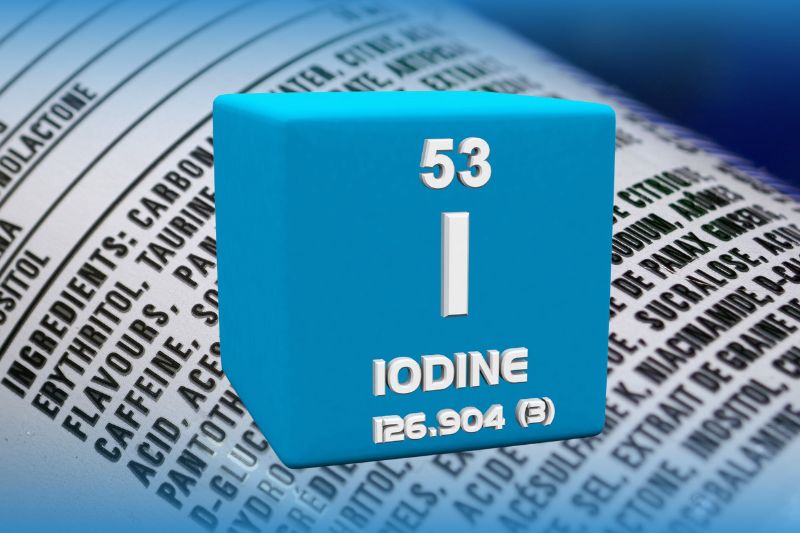
Iodine is a crucial mineral for the body, primarily known for its role in thyroid function. While it's vital for producing thyroid hormones, a growing trend involves people taking very high doses, sometimes prescribed by holistic practitioners, for thyroid support, immune function, and to manage estrogen effects. However, when it comes to iodine, more is not always better. The Recommended Daily Allowance (RDA) is set at a modest 150 micrograms (mcg) per day, and exceeding this significantly can lead to a number of adverse health effects.
The thyroid gland is highly sensitive to iodine levels. It requires a specific amount to function correctly, and too little or too much can throw its delicate hormonal balance into disarray. The body has mechanisms to regulate iodine intake, but these can be overwhelmed by mega-doses, potentially leading to serious consequences.
Excessive iodine intake, particularly from high-dose supplements, is associated with several risks:
This link is not just theoretical. Studies have shown that regions with higher levels of iodine in the soil and water also tend to have a higher prevalence of autoimmune hypothyroidism and anti-thyroid antibodies. Also, recent research from Denmark showed that increasing salt iodization in the country led to an increased prevalence of anti-thyroid peroxidase antibodies, a key marker of thyroid autoimmunity.
It’s also important to note that some individuals, particularly those with pre-existing thyroid conditions, may be more sensitive to even moderate increases in iodine. Urine testing is the most accurate way to test one’s iodine levels.
For people with a healthy, normally functioning thyroid (referred to as euthyroid), a daily intake of up to 2,000 mcg is considered a tolerable upper limit without causing clinical changes. However, this is a far cry from the mega-doses often promoted (10,000 mcg or higher), and it assumes the individual has no underlying thyroiditis and lives in an iodine-sufficient region.
The evidence suggests a clear need for caution when considering high-dose iodine supplementation. While iodine is essential, our bodies are finely tuned to a specific range. Vegans and those who avoid iodized salt are at higher risk for iodine deficiency. Taking mega-doses can disrupt this balance, potentially harming your thyroid and triggering an autoimmune response. Before starting any high-dose regimen, it's wise to consult a healthcare professional to ensure it's appropriate for your individual health needs.